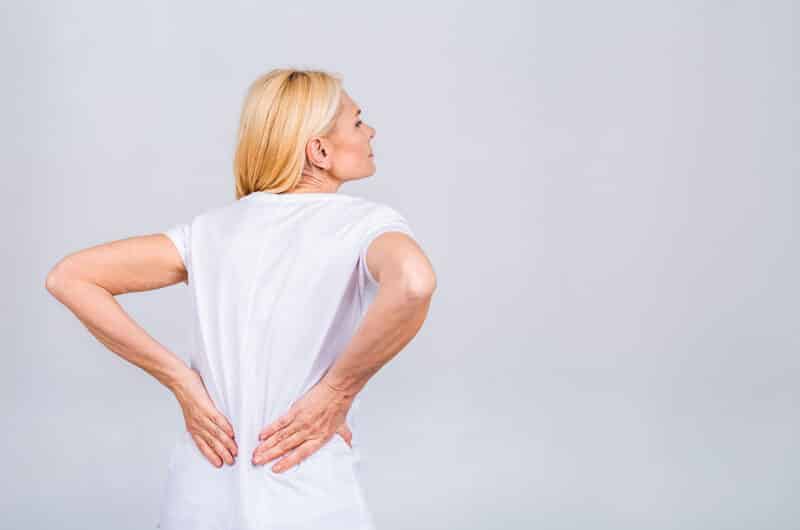Osteoporosis is more common than you think…especially for women
One in two women, compared to one in four men, over 50 will break a bone because of osteoporosis
Osteoporosis is very common, but thankfully there is a lot we can do to keep our bones healthy. From eating a well-balanced diet to engaging in regular exercise, we can cultivate a healthy lifestyle that’s friendly for our bone health. We’ve all heard about the importance of growing strong and healthy since we were kids. However, bone health is far more than just drinking a glass of milk daily. Our bones keep us moving and protect our organs like our brain and heart. And just like any organ, our bones need attention and care too.

What is osteoporosis?
Osteoporosis is a health condition that weakens bones, making them fragile and more likely to break. It develops slowly over several years and is often only diagnosed when a fall or sudden impact causes a bone to fracture. Both men and women are prone to osteoporosis. However, this bone disease is more common in women, especially after menopause. Keep reading to find out the most effective (and specialist-approved) ways to prevent and combat this silent disease that weakens bones.
It’s never too early or too late to start taking care of your bones
Although it is not a hereditary disease, there is a genetic predisposition that doubles the risk of suffering from osteoporosis. If you recognize that you are in danger of suffering from osteoporosis, you can start to fight it before it occurs. Some risk factors for osteoporosis include:
- Sex: women are much more likely to develop osteoporosis than men.
- Age: the older you get, the greater your risk of osteoporosis.
- Race: you’re at greater risk if you’re white or of Asian descent.
- Family history: having a parent with osteoporosis puts you at greater risk, especially if your mother is the one that suffers from it.
- Body frame size: men and women who have small body frames tend to have a higher risk because they might have less bone mass.
If your mother suffers from osteoporosis, you must take certain precautions starting from age 20 or 30, since bone mass is still being produced at this age. It is ideal to maximize bone mass with good nutrition and exercise.
Exercise
Exercise is one of the most important things that can be done to prevent osteoporosis. Especially activities such as: walking, jogging, lifting weights, doing push-ups, and climbing stairs. Our specialists in Traumatology and Orthopedics at CMQ Hospital recommend doing physical activity five to six days a week for a minimum of 30 minutes. Remember that a total lack of exercise always brings consequences. Get active as soon as possible. Exercise can help you build strong bones and slow bone loss.
Minimize your Salt Consumption
It has not been proven if salt has a negative impact on the bones. However, studies seem to emphasize that there is a close relationship between a high sodium intake and bone loss, especially in people with high blood pressure. Similarly, research says that people with hypertension lose large amounts of calcium through urine and sweat, which can lead to bone loss if you already have a calcium deficiency.
No More Soft Drinks
High consumption of carbonated beverages (doesn’t matter if they are decaffeinated, diet, or regular) has been linked to a greater risk of thinning bones. Why? Well, many sodas that we consume, including Cola, contain phosphorus, a mineral that the body needs to a certain extent. Nonetheless, many of us consume large amounts of carbonated beverages. As a result, this high intake of phosphorus may increase the risk of osteoporosis.
Limit Caffeine
Caffeine interferes with the absorption of calcium, so any substance that contains it (soda, coffee, or chocolate) should be limited. We recommend you moderate your intake of caffeine, for example, 300 milligrams a day, which is about a cup of coffee or two cups of tea.
Quit Smoking once in for all
Smoking prevents the rapid healing of fractures and reduces the body’s ability to produce bone mass. The longer you have been smoking and the more cigarettes you consume, the greater your risk of suffering from fractures in old age. However, quitting smoking altogether increases bone strength and the ability to recover from an injury. Nonetheless, for many, this can take years to accomplish.
Limit your alcohol intake
Up to two drinks, a day can help prevent fractures. However, more than two drinks a day could reduce the absorption of calcium, deplete the reserves of this same mineral, and minimize the level of hormones, such as estrogen. The hormone estrogen is involved in bone production. Excessive alcohol consumption can also put people at risk of accidents, falls, and breakages.
Take a daily supplement containing Vitamin D
Vitamin D helps the body absorb, retain, and use calcium. Sunlight triggers the production of this vitamin in the body, as well as certain sources of food, such as milk, orange juice, and various cereals. Moreover, experts suggest taking a supplement containing 10 micrograms of vitamin D daily.
Calcium
Adults between 19 and 50 years of age should receive an amount of 1,000 milligrams of calcium per day, according to the National Institute of Health (NHI). The recommendation increases to 1,200 milligrams for women over 50 and for men over 70. Calcium supplements are generally safe but should be taken at the recommended dosage and along with vitamin D. Keep in mind that an uncontrolled dose of calcium increases the risk of kidney stones and other problems.




